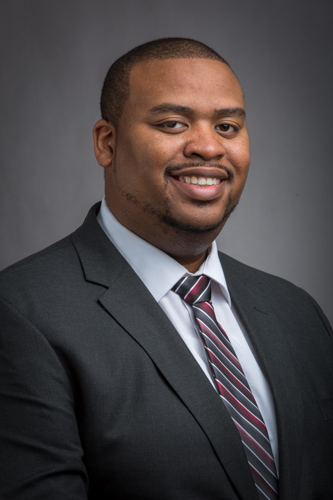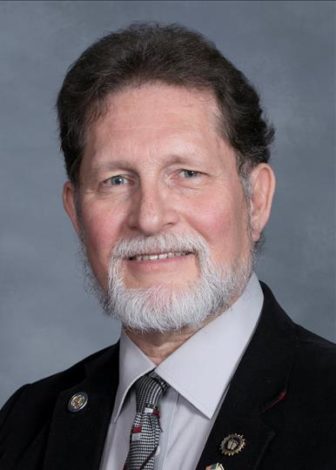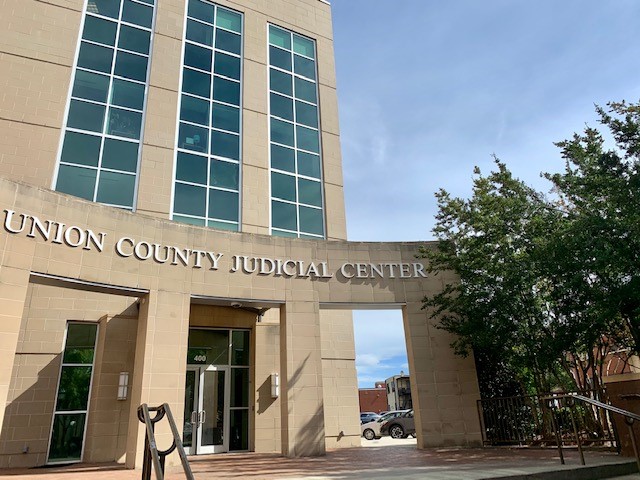CHAPEL HILL, N.C. — With Raise the Age taking effect in less than a month, North Carolina is preparing to receive new 16- and 17-year-old offenders into the juvenile system.
The state has not increased its juvenile age since 1919. Revamping juvenile justice has been in discussion since the 1990s, but the legislature sidestepped raising the age. The reform passed two years ago.
So what about North Carolina circa 2017 led to the passage of raise the age? Recent research on juvenile crime gave the legislation factual legitimacy, while pressure from being the only state to still prosecute 16- and 16-year-olds as adults gave the bill political momentum.
Some credit goes to former state Chief Justice Mark Martin. In September 2015, Martin convened a meeting of the North Carolina Commission on the Administration of Law and Justice.
The 65-member commission brought together stakeholders in law enforcement and criminal justice. They shared their concerns about raising the age, mostly regarding how it would be staffed and funded, and their input helped shape the commission’s focus.
In 2016, the commission hosted four public hearings across the state in 2016 and held 62 meetings, working in the concerns of state judges, business owners, legal professionals, law students and members of the public. The group’s final report in March 2017 included recommendations for raising the age, among other reform plans.
Other states had acted first

North Carolina Central University
Jonathan Glenn
The equivalent of peer pressure between states helped push the change forward, said Jonathan Glenn, associate project director for the Juvenile Justice Institute at North Carolina Central University. Those who blame the delay on Republican control of the legislature don’t consider that Democrats controlled the legislature from 1999 to 2010 before the General Assembly turned red, he said.
North Carolina got negative attention after other states raised their age, he said. This ratcheted up political pressure to act.
And while raise the age wasn’t a part of the state’s vernacular yet, other policies aimed at improving juvenile justice were passed during the late 1990s and 2000s, including the creation of the Office of Juvenile Justice and the Juvenile Justice Reform Act of 1998, which preserved the maximum age of jurisdiction of 18.
“This isn’t just a ‘Republicans are heartless’ kind of a thing,” Glenn said. “[Juvenile crime debate] has been a thing here in North Carolina for quite some time, so I do think it speaks to our brand of justice in terms of how we conceptualize children and what they are able to understand about crime.”
But not all thought this pressure from other states was a force for good.

North Carolina General Assembly
Rep. Larry Pittman
Republican state Rep. Larry Pittman said the influence of other states shouldn’t have factored significantly into the law’s passage but did. Pittman, who didn’t vote for the bill but supports its funding now, believes the fear of being too tough on crime pushed some to vote in favor.
“I am about as proud a Southerner as they come and don’t feel we should be unduly influenced by what someone else may be doing,” he said. “We should decide for ourselves what is right for our state and our people.”
Research on psychology, fiscal results
Glenn said reform at the federal level had provided momentum, and that people paid closer attention to research on the effects of youth incarceration as it became more available.

John Locke Foundation
Jon Guze
Jon Guze, director of legal studies at the John Locke Foundation, said research played a large role in bringing policymakers from all sides together.
“I’ve been impressed by the extent to which North Carolinians, just in general, seem to be pretty sensible,” he said. “I also think that people in other parts of the country tend to assume that we’re some kind of Southern backwater where we’re just tough on crime, but it isn’t true.”
While some legislators objected to raise the age because they feared it was too soft on crime, research on juvenile psychology, as well as on the economic benefit of raising the age, was presented to sway skeptics.
“We’re just now coming around to acknowledge that children are not little adults,” Glenn said. “They are, in fact, children.”

North Carolina Office of Juvenile Defender
LaToya Powell
In the last decade, several cost-benefit analyses were done in North Carolina on raise the age by different entities, from advocacy groups to the Governor’s Crime Commission.
Still, part of the reason raise the age kept failing in its early stages was because legislators were concerned about expenses tied to expanding the juvenile system, wrote LaToya Powell, assistant legal counsel for the Administrative Office of the Courts, in a blog post in August 2017.
And supporting a law like this is costly. Juveniles, who may not have completed K-12 education and require certain developmental resources, demand more from the criminal justice system than do adults. For example, said William Lassiter, deputy secretary for juvenile justice, juvenile offenders receive mental health screenings upon entering the system and referrals if the assessment indicates they are necessary.

North Carolina Department of Public Safety
William Lassiter
“We really believe the juvenile justice system does a better job of doing that root-cause analysis in trying to get to those issues that cause kids to enter the system,” he said.
An early concern before the law was passed was that the General Assembly wouldn’t support funding for raise the age, thereby undermining all the research and coalitions put together to pass it. All the money for raise the age was in the original state budget that was vetoed in June because of its lack of Medicaid expansion.
House Bill 1001, passed as a mini-budget to circumvent the vetoed state budget, was signed by Gov. Roy Cooper on Oct. 14. The bill allocates $77 million to local prosecutors, courts, the Department of Public Safety, the Administrative Office of the Courts and the Office of Indigent Defense Services to fund Raise the Age.
The funding bill will also provide for additional district court judges and district attorneys to handle increased juvenile caseloads.
Benefits of being last
Progress has been made already in reducing the number of juveniles in Youth Development Center — which provide mentorship, education and therapeutic treatment to prepare juveniles for a fresh start when they re-enter their communities — from 1,400 in 1999 to nearly 200 today, Lassiter said.
Being the last to raise the age has had its advantages, he said, even though he wasn’t convinced at first that it was the right decision. In drafting raise the age, policymakers made adjustments based on outcomes they observed in other states who had raised their juvenile jurisdiction, he said.
North Carolina’s version includes the “Once an Adult, Always an Adult” clause, meaning 16- and 17-year-olds in an adult court will remain there for all subsequent crimes. While that does exclude some youth from juvenile jurisdiction, Lassiter said it was necessary to avoid overwhelming the system on day one by intaking all 16- and 17-year-old offenders.
Proponents argue raise the age will save the state’s economy in the long run by keeping youth out of the criminal justice track in the first place. North Carolina sees a 7.5% decrease in recidivism when teens are adjudicated in the juvenile versus the adult system, according to Mecklenburg County advocacy group the Council for Children’s Rights.
“The only reason this is going to be cost effective in the long run is if it does, in fact, reduce recidivism,” Guze said. “But the evidence for a lot of states is that it will.”
Lassiter predicts a decrease of at least 12.5 to 13% in recidivism for 16- and 17-year-olds after raise the age takes effect.
With less than a month until raise the age takes hold, stakeholders on both sides of the issue are relieved by the follow-through.
“All of us make mistakes, and we shouldn't allow that one mistake we commit when we’re 16 or 17 years old to affect the rest of our lives,” Lassiter said. “And I think there is a perspective in the General Assembly that is changing on that.”
Sierra Sanders contributed to this report.

I’m a little confused about the characterization of North Carolina as the last state to prosecute 15 and 16 year olds in the adult system. I work as a teacher in a jail in Arizona–specifically teaching classes to minors charged as adults. I have students as young as 14! Do y’all mean to say that they changed what charges can be sent to adult court? I’ve read other reports that say that 250,000 kids a year are charged in adult court. That isn’t happening just in North Carolina.
This legislation just prevents the AUTOMATIC treatment of ALL 16 and 17 year olds as adults in the justice system. It doesn’t stop the adult waiver process that continues to exist for some juveniles of various ages charged with certain crimes.